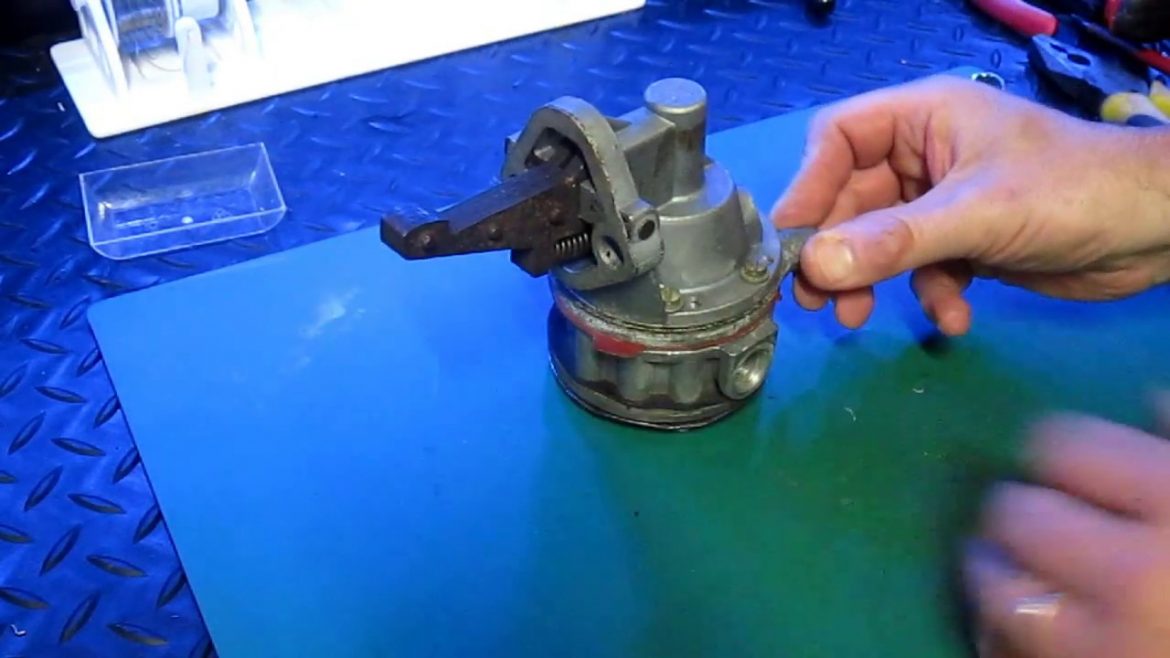Mechanical fuel pumps play a crucial role in delivering fuel from the gas tank to the engine in vehicles. However, like any mechanical component, they can experience issues over time. In this blog post, we will explore the signs that indicate a failing mechanical fuel pump and provide you with practical steps to diagnose the problem accurately. By understanding these signs, you can take timely action to prevent further damage and ensure the smooth operation of your vehicle.
- Engine Stalling or Difficulty Starting:
One of the primary indicators of a bad mechanical fuel pump is engine stalling or difficulty starting. When the pump fails to deliver an adequate amount of fuel to the engine, it can result in intermittent stalling or prolonged cranking before the engine starts. This issue is often more noticeable when the vehicle has been sitting for a while or when the fuel level is low. - Sudden Loss of Power:
Another sign of a failing mechanical fuel pump is a sudden loss of power while driving. If the pump is unable to maintain a consistent fuel flow to the engine, it can lead to a decrease in power output. This loss of power may be most noticeable when accelerating or climbing hills. If you experience a significant drop in performance, it is essential to consider the fuel pump as a potential culprit. - Engine Misfires or Hesitation:
A malfunctioning fuel pump can also cause engine misfires or hesitation during acceleration. When the pump fails to deliver a steady supply of fuel, the engine may not receive the necessary fuel-air mixture for combustion. This can result in misfires, rough idling, or hesitation when you press the accelerator pedal. If you notice these symptoms, it is crucial to inspect the fuel pump system. - Unusual Noise from the Fuel Tank:
In some cases, a failing mechanical fuel pump may produce unusual noises from the fuel tank area. These noises can range from a whining or buzzing sound to a loud clicking or knocking. The noises are often caused by a worn-out pump or a faulty check valve. If you hear any abnormal sounds coming from the fuel tank, it is advisable to have the fuel pump inspected promptly. - Fuel Smell or Leaks:
A leaking fuel pump is a clear indication of a problem. If you notice a strong fuel smell around your vehicle or detect fuel leaks underneath, it is highly likely that the mechanical fuel pump is failing. Leaks can occur due to worn-out seals or damaged components within the pump. It is crucial to address these issues promptly to prevent safety hazards and potential engine damage.
Conclusion:
Identifying the signs of a failing mechanical fuel pump is crucial for maintaining the performance and reliability of your vehicle. By paying attention to engine stalling, power loss, misfires, unusual noises, fuel smells, and leaks, you can diagnose the problem accurately. If you suspect a faulty fuel pump, it is recommended to consult a professional mechanic for a thorough inspection and necessary repairs. Remember, timely action can save you from costly repairs and ensure a smooth driving experience.

